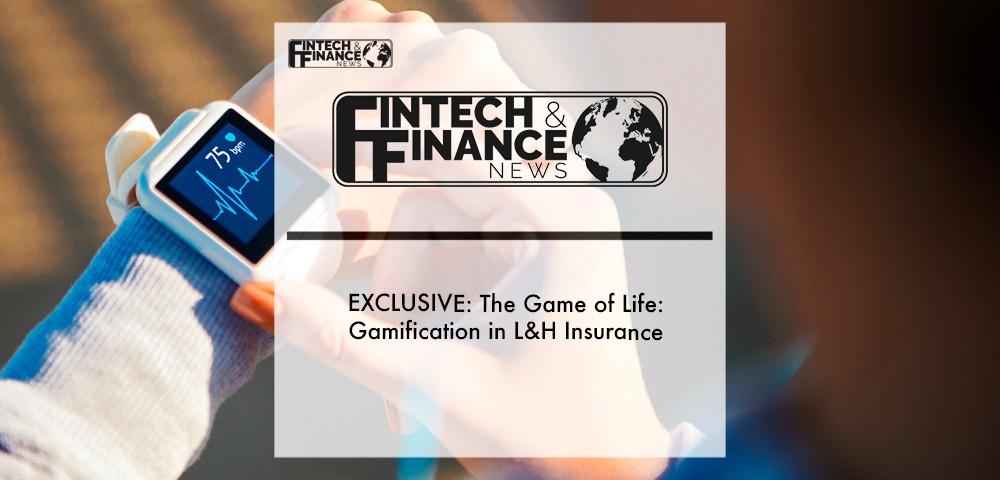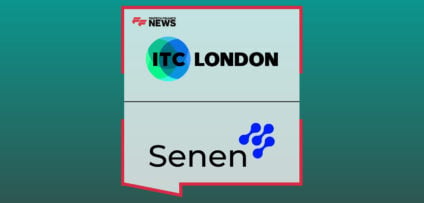Breaking News

EXCLUSIVE: The Game of Life – Gamification in L&H Insurance
Aniqah Majid, Fintech Finance
People are always going to get sick. If anything, the pandemic only proved this. A 2019 Swiss Re report found that the mortality protection gap is estimated to be worth over $114 trillion globally; the world’s over 60s population is also expected to shoot up to 2.1 billion by 2050. Meteoric change is occurring socio-economically, and L&H insurance continues to navel gaze, standing by the maxim ‘if it’s not broken, don’t fix it’.
The current market is ripe with potential innovation, with half of the funding transactions in L&H being from distributors. Remote health check-ups dominated the last three years, and with it routine processes changed; the use of telehealth increased 38x more than before the pandemic, according to McKinsey. Customers rely more now on technological efficiency than ever when it comes to health.
The introduction of wearables and IoT in the healthcare sector has cemented the digital transition in the insurance industry
Using the data these devices collect, underwriters will be able to make more precise risk assessments when curating personal policies, no longer relying on the arbitrary metrics of BMI and age.
“Insurance is all about data,” said Assaf Henkin, entrepreneur, COO and president of the life insurance provider Sproutt. “(Along with analysing medical records and credit scores) we said, let’s add a new layer of data that pertains to lifestyle. An area that is getting more interest from the industry but has not been dealt with yet. Lifestyle is a strong predictor of mortality. There is plenty of research out there that physical activity goals, like step count or your sleep, are stronger predictors of mortality than things such as BMI.”
Sproutt has been operating since 2018 and has taken what it means to be an insurtech to new heights using its data analytic tools. In their last Series B funding round, the company secured $26 million in investments, led by Israeli VC fund MoreTech ventures. Sproutt’s use of data and automated processing allow them to offer unique products like no-exam life insurance, where the customer does not need to go through a medical exam, and universal life insurance, where customers can handle their coverage without the issue of tax or premiums deterring them.
“We got into insurance primarily due to our curiosity around data and insurance being a prime data product and ecosystem,” said Henkin.
Along with their insurance products, Sproutt has a Quality of Life Index (QLI). This service allows customers to take personalised questionnaires about their health-related behaviours – sleep, exercise, and mental health. Their policies are built around the score they attain with the questionnaire, giving different rewards to ‘good’ behaviours. This is a gamified system.
Gamification is the use of gaming mechanics – points, leaderboards, rewards – in a non-gaming context. Its use as a tool to sell products has been exhausted in all industries, from open banking to investing in crypto. The insurance industry has not held back either, with gaming principles spilling into the operations of auto insurers like Aviva and their drive app, and home insurers like American Family Insurance and their Sims-like family planning game.
With L&H insurance, insurers are seeking solutions that will prevent customers from having to make a claim to begin with. They ensure this result by embedding health and wellness into their policies. L&H is distinctive from other types of insurance as it deals wholly in human life – there is an emotional incentive to sell.
Gamification works as a call to action. Customers are made to engage with insurers and play an active role in improving their health
On the QLI, Henkin explained how data is collected from questionnaires to build insurance policies, “the more data that we have, the more accurate and predictable it becomes. And at the end of that process, we can score you, essentially, on physical activity, sleep, nutrition and mental health – what we call balance, a measurement that balances all those aspects together. We take that and add it with all the other data that we have to best match and recommend an insurance product to you, and make the insurance process more personal and intuitive.”
Henkin also spoke in-depth to FF News about claims prevention and how it not only provides a cost-saving benefit for insurers but also a pool for innovation when developing products like long term care insurance. To retain loyalty, gaming principles and robust AI can be used to map out cyclical policies for a wide scope of customers.
This is not news to UK insurtech YuLife, which has been utilising gaming-mechanics since its inception. The company hosts an immersive wellness app, which motivates users to walk, cycle or meditate in any of their built-in app environments, coined the ‘Yuniverse’.
“YuLife’s game-like app offers users tangible rewards for carrying out everyday wellness challenges – think Amazon vouchers in return for walking or meditation,” said Josh Hart, the co-founder and Chief Product & Technology Officer of YuLife. “Prioritising gamification ensures that the YuLife app attracts far more engagement than comparable wellness apps, meaning that YuLife has successfully developed a product that is valued and enjoyed by policyholders. We offer life insurance policies which make a genuine difference to mental, physical and financial wellbeing, while also using innovative tech and gamification to turn healthy habits into something fun and enjoyable.”
Expanding into wellness, and giving people the ability to interact with that, lays down a bond of trust
Users will be convinced that their insurer is just as invested in their wellbeing as they are, incentivising them to consider buying a policy. This is further cemented by wellness products being complementary.
On this, Henkin said, “we believe that there is a real win-win here. We’re able to provide additional content and information which will enable a customer, a policyholder to live a better life. It’s something that we expect any return on, we provide it completely free, you don’t have to buy a policy from us to access a lot of this content. At the end of the day, it’s a bit altruistic, in a business-savvy sense, at the back-end of it, the healthier you are, the better it is for both of us.
A 2018 Deloitte report into consumer preferences on life insurance found that most people are switched off from the product, only being triggered when life situations call for it, i.e. having children (62%) or buying a home (54%). The report saw that this lack of engagement was down to poor marketing. People need a reason to care about why they need L&H insurance.
Gamification foregrounds the autonomy of the customer, with questionnaires and daily health goals, they are the ones deciding what they need and what their policies should facilitate. With the introduction of the metaverse, which YuLife is investing heavily in, insurers have even more breadth to integrate gaming mechanics into their onboarding.
Hart told FF News, “The metaverse has great potential to play a transformative role in improving the appeal of insurance products. It can enrich every part of our lives, but the focus has to be on enhancing our wellbeing in the real world, rather than escapism.”
- Cytora and Altitude Intelligence Partner to Embed Advanced Geospatial and Climate Risk Intelligence into Insurance Workflows Read more
- DataHaven on What Truly Defines a Real Insurance Technology Partner Read more
- Introducing Crosstie: Gain Life Rebrands to Expand Workflow Automation Across P&C Insurance Operations Read more
- Iute Group Establishes Iute Affinity for Insurance Solutions Read more
- Falling Cost of Premium Finance Saving Consumers Around £157m a Year Read more



















